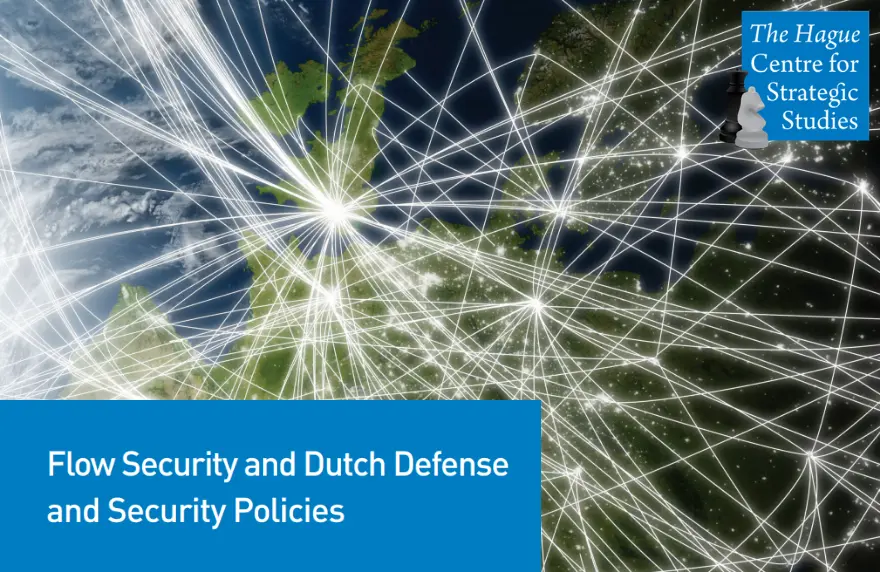Research
From 5G to the data streams in military hardware to the SWIFT messaging system, our modern society depends on the speedy, secure, and uninterrupted flow of information. But what if these worldwide flows are threatened and disrupted?
“Managing tangible and intangible resources and flows is key to new power strategies. The high seas, air space and outer space and the digital realm, common spaces that interpenetrate each other and complicate our understanding of the issues, are becoming or are once again arenas for power struggles and at times, confrontation.” – Emmanuel Macron
In a hyper-connected world, the ability to influence or control flows is key to new coercive strategies. This HCSS report aims to contribute to a better and more detailed understanding of the notion of flow security and of the policy options for both the Netherlands and Europe to effectively contribute to flow security to protect vital interests and values
In order to do this, this report considers three cases – each from a different perspective:
- 5G Networks and Standards from an economic angle
- The continuous development of the F35 fighter plane from a military perspective
- Entanglements in the financial system through an institutional lens
Regarding potential flow security risks for the 5G case, this report finds that there is a strong nexus between national security considerations and the deployment of 5G; that security incentives directly contradict economic incentives & that dependence on Chinese technology harms European innovation.
Key takeaways from analysis of the second case are, among others, that the many benefits of US-Dutch military collaboration are contingent on sharing information and that critical information-sharing agreements are necessary to keep Dutch F35’s operational.
Thirdly, financial entanglements have the potential to create international financial disruptions and highlight the financial sector’s dependency on technological innovation.
Concluding, the three cases each represent technology flows that come with high, potentially unacceptable, levels of risk to Dutch national security – which requires proactive management at the national and at the European level. Failure to do so will severely limit Europe ability to set and pursue its own geopolitical objectives and, as a result, curtail European strategic autonomy.






